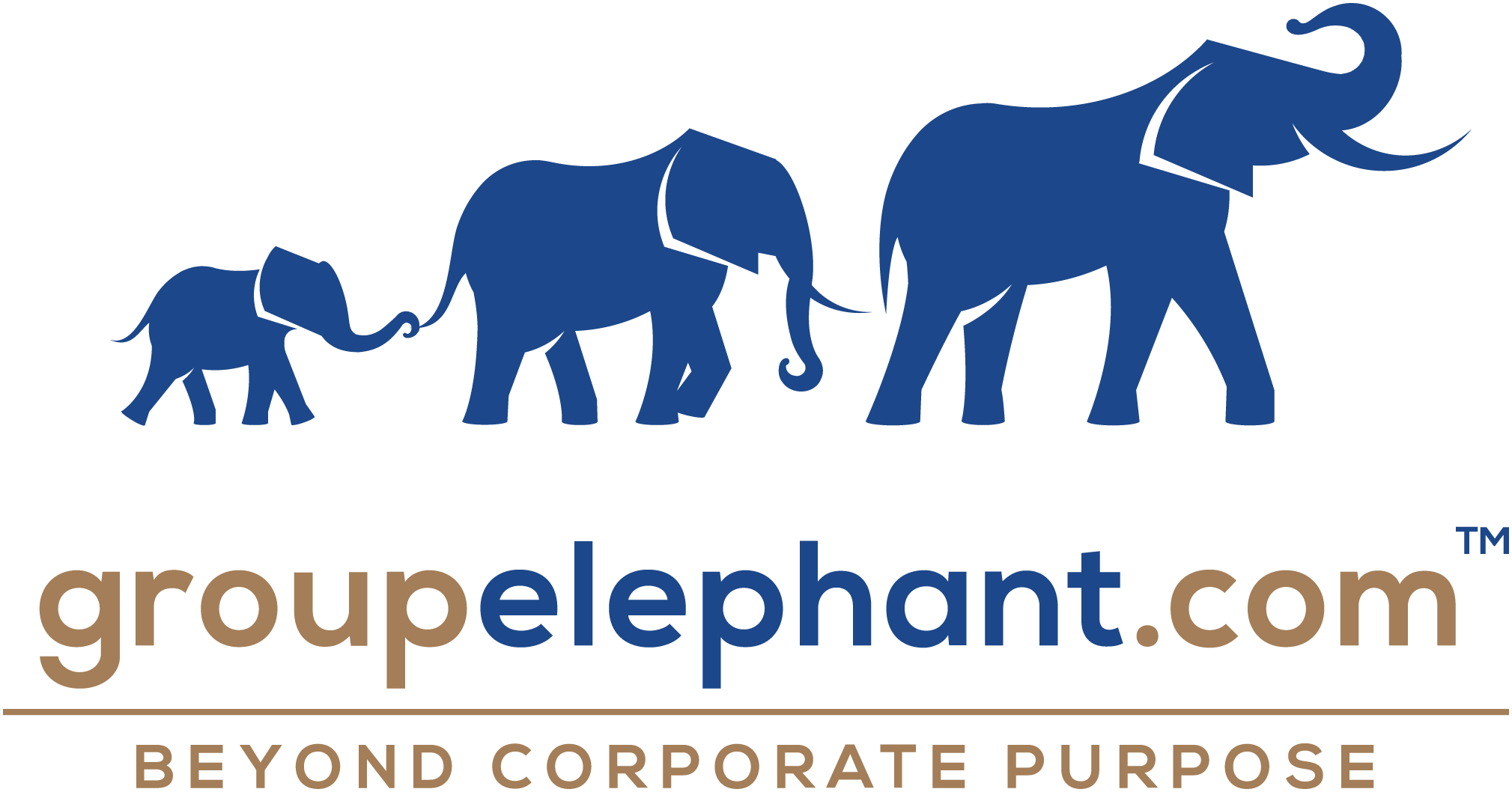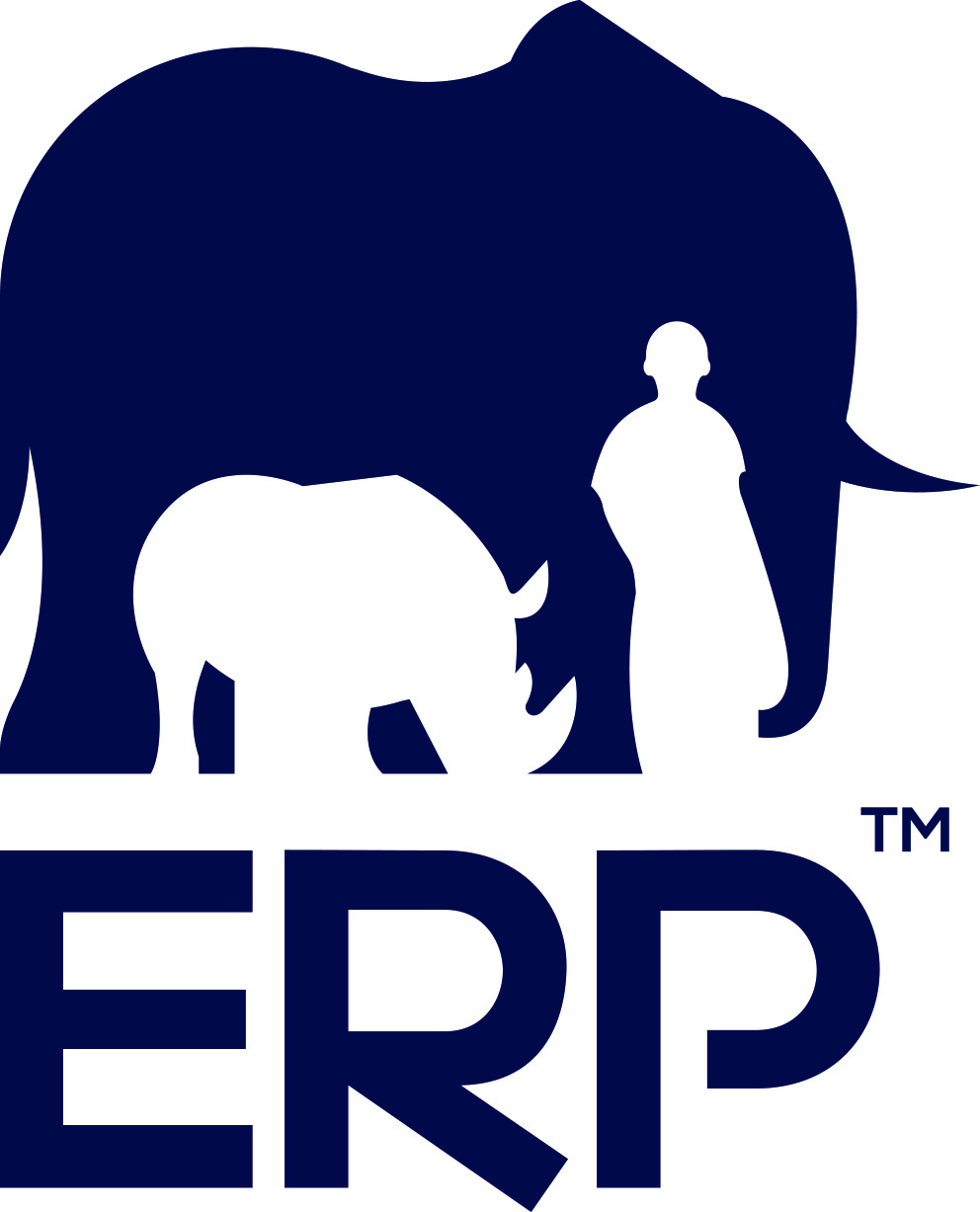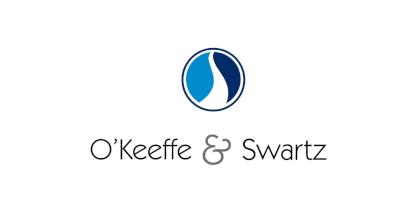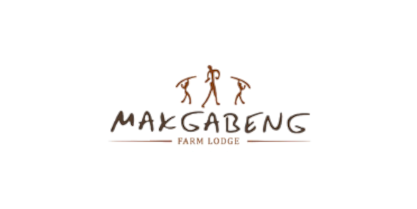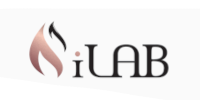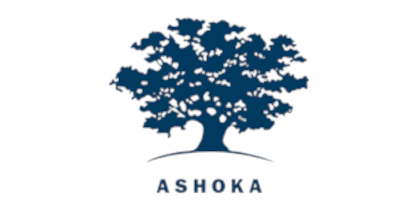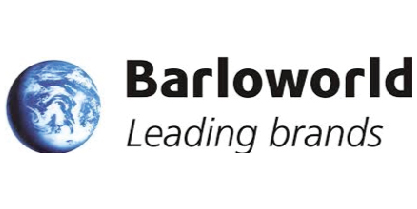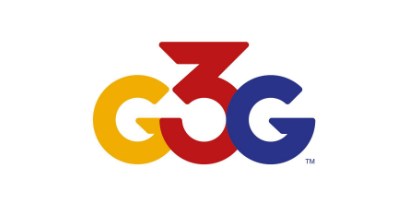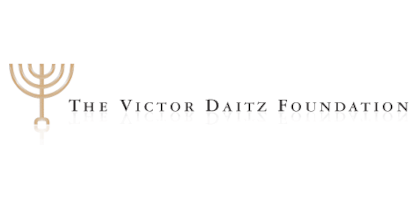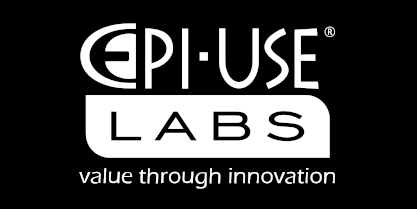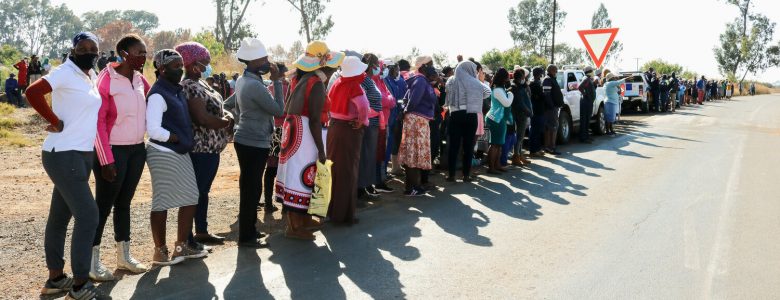
Power Of People: Helping Our Partner Communities
A line of people is standing ready in the early morning sunlight as the truck arrives. The warm caresses of summer are gone and there is a chill in the air. A small crowd of employees and volunteers move out of the way as the truck enters the area and parks under a tree. The side is slid open, revealing pallets with bags of pap and bags with a month’s supply of essential groceries. The team from ERP is ready to deliver these essential food parcels to the long line of people wearing facemasks in a multitude of variations from colourful fabrics to buffs and scarfs wrapped around the lower half of faces.
This scene has repeated itself many times over in the last three months. From May mornings with only a chill in the air to the truly freezing winter mornings of July. ERP has been distributing food parcels to over 2,500 families in 9 different communities once a month.
The last few months we have experienced a changing world first-hand. How the world will be when we come out on the other side is unknown. And who knows how long that will take. We are still in the middle of it all. It is a confusing time, where uncertainty and change seem to be the only constants in life. All are struggling and trying to find their own way at the moment. But some are struggling more than others – and are paying the heavier price for it.
As we speak, 3 million South Africans have lost their jobs, while another 1.5 million citizens have managed to keep their job but are without an income. In June, an unfortunate record was broken with unemployment rising to 30 % of the population. Frustrations are running high in the country that has had one of the strictest lockdowns. With a population of just under 60,000,000 people the usual hustle and bustle of the streets was silenced overnight. A lockdown where people were not allowed to leave their homes for 2 months. The army was called into to enforce the regulations all over the country. Grocery shopping, medical issues or if deemed essential workers were the only exceptions.
As society came to a halt, non-essential workplaces everywhere shut down. If you could continue to work from home, you were one of the lucky ones. Many were not so lucky. Inadequate economic relief strategies and aids have led to people struggling all over. The current crisis is devastating for all affected. But especially for the large portion of the population living from hand to mouth in a country without an all-encompassing security net.
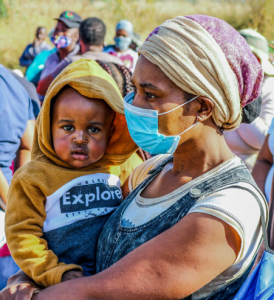
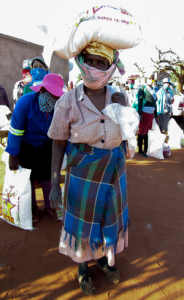
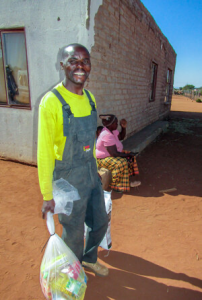
Most of the world’s countries closed their borders to foreign nationals and recommended its citizens to stay home. Completely logical and necessary precautions during a pandemic of an airborne pathogen with a relatively long, and seemingly often asymptomatic, development. Limiting the spread and flattening the curve were essential to ensure a functioning healthcare sector – a lesson learned from other countries.
The collapse of the tourism industry in South Africa, however, is a serious casualty of the coronavirus. The number of tourists visiting South Africa has been steadily increasing over the years. An expected 17.3 million would have visited in 2020. Whether some of these will still get the chance to visit in the future is uncertain. Currently, South Africa is listed on the Top-5 of countries with most infection cases. As long as this is the case, travel restrictions and recommendations from the traditional tourists’ countries will be to avoid the country.
The collapse is devastating for the approximately 750,000 people working in the industry, and the even higher number of people indirectly benefitting from tourism. Everyone with an income depending directly or indirectly on tourism has taken a blow – from travel agents, to guides and rangers on the reserves, to suppliers of food, of beverages, and of arts and crafts, as well as the families of these employees and suppliers.
The catastrophe extends its long-reaching ripples into adjacent fields. One is nature conservation with NGOs who were already fighting to protect ecosystems, habitats and species, and the people living in the interface between human civilisation and wilderness as neighbours to protected areas. Many NGOs rely on donor funding, which has slowed to a trickle with the struggling economies worldwide. Reserves and conservancies lack funding to continue to stay afloat. Managing the wilderness and protecting vulnerable species requires the essential funding supplied by tourists and enthusiasts both locally and globally. Without this, reserves are forced to let staff go and continue on with the bare minimum, hoping for better times to come before it is too late. Poor communities adjacent to protected areas find themselves in a desperate situation, where the main focus is to feed your family. In such circumstances, it is not surprising that people turn to their immediate environment for sustenance. Natural resources just waiting to be harvested – snares for bushmeat, traps for fish, firewood, and land for crops. And for poaching of rhino and elephants.
Conserving elephants and rhinos through the alleviation of poverty is the essence of Elephants, Rhinos & People. It is the guideline we follow in all our projects. Our conservation projects need to be beneficial and uplifting to adjacent communities. One does not work without the other. This does not normally involve distributing food parcels on a large scale. Rather, ERP partners with communities to build thriving and sustainable businesses that will secure steady income and independence. However, in these strange and daunting times, we are supporting our prospective partner communities as best as we can. A recent survey of South Africans found that 22 % reported that at least one member of the household went hungry in the previous seven days.
When the current crisis has improved and we can all breathe a bit more freely, we will start working on how to incorporate more buffers and cushions for hard times into the businesses and communities we support. Experts predict that this current epidemic will not be the last. So, we need to plan and prepare for that future with our partner communities.

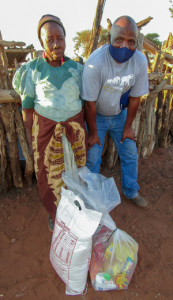
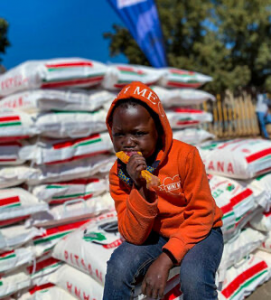
Sekelekani Cooperative, KwaZulu Natal
ERP has partnered with community members here, in a joint venture with Portia Morudi, the trainer and implementer of this business model, for a pilot project, using beehives – both as a for profit business as well as a deterrent for crop-raiding elephants. Studies have shown that elephants avoid bees, and this aversion is used to create an elephant-proof fence made up of strategically placed beehives. The honey is harvested and then sold in ERP branded bottles, through eMercantile as well as corporate gifts and to designated retails stores through Portia Morudi’s network. Their winter crop of chilis will help them in the winter season, when honey production is low. The delivered food parcels, at this time, are very welcome, since many families are assisted with money that is sent to them, to supplement their income, from family members, who are migrant workers who have lost their jobs in the cities as a result of the catastrophic Covid Lockdown.
Ndumo-Tembe Community, KwaZulu Natal
P.E.A.C.E Foundation has been involved with this community since 1994. ERP is in the process of negotiating partnerships to set up conservation projects with some of the communities that have been designated restituted land based on land claims in this region. Food parcels were distributed from the schools to the beneficiaries’ children. These will really make a difference in this community during these trying times, while schools are closed and as a result the children are not receiving food from the school feeding scheme, which provides one meal a day, which, for many, particularly the orphans and child headed families, is often the only meal of the day.
Morogoa and Moepel farm villages, Limpopo
P.E.A.C.E Foundation has long been involved in the Waterberg region with community development projects dating back to the year 2000. An example of one of the more recent initiatives, is the Waterberg Waves Radio Station, which broadcasts educational programmes on nature, conservation, poverty alleviation and ERP’s projects on a daily basis. In this region, isolated villages, where prospective land beneficiary partners live, adjacent to claimed land, earmarked for conservation, can be difficult to reach. Even if they may be out of sight for some, they are not out of mind for ERP. The food parcels delivered here will help these communities, prior to the finalization of prospective partnered land deals.
Ntshabeleng Waste Management Cooperative, Limpopo
This all-women business was established, with donor funding, as a cooperative in Senwabarwana. Both winter and the lockdown has affected their business negatively, with many businesses closed for business and a resultant huge reduction in local waste. They have, however, recently established their own vegetable garden, which will help them in the long term, but the addition of the food parcels was very welcome in this current loss of income experienced locally.
Blouberg and Makgabeng Communities, Limpopo
ERP is awaiting formalisation of a three-way partnership with the community and the Provincial government department in Limpopo, responsible for the administration of Tourism Enterprises and Conservation in that region. When this is finalized, which should be imminent, ERP will look forward to improving the standards of conservation and tourism in this very beautiful piece of conservation land, in keeping with the ERP standard mission. In the meanwhile, while that community await assistance, the food parcels are proving to be a great to the people in these communities, through these difficult times.
L&J Settlement, Gauteng
ERP has been involved with Rietvlei Game Reserve for a few years now. Just beyond the fence is an informal community struggling under the lockdown. The food parcels here will help around 500 beneficiaries.
Kekana Gardens, Gauteng
For a couple of years, ERP has been supporting a group of 8 young people in their beekeeping efforts. The Dino Beekeepers from Kekana Gardens, a community neighbouring Dinokeng Game Reserve, has been given food parcels to help them and their families.

A huge THANK YOU to the James Banks Foundation for their support! With their help, ERP will have delivered a total of 1 million meal portions benefitting 2,500 families in a 3-month period from May to July.
